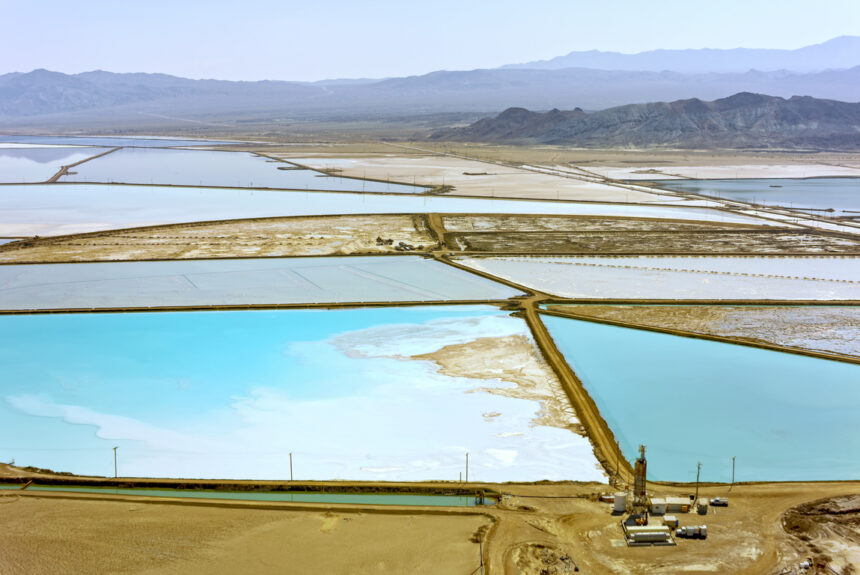At the turn of the 20th Century, President Theodore Roosevelt sent America’s “Great White Fleet” on a voyage around the world, even though lawmakers had only appropriated enough funding for half of the trip. He assumed, correctly, that Congress would pay whatever it ended up costing to keep the ships fueled with coal throughout their trip.
Just a few years later, First Lord of the Admiralty Winston Churchill decided to switch all British warships from coal to oil. This allowed them to go faster and farther. However, it required the use of oil from the Middle East instead of coal from the home islands. Better maneuverability came with the price of political compromise at home and longer supply chains abroad.
>>>READ: All of the Above on Energy Requires the Critical Minerals Below
In our own time, there’s been a shift from just coal and oil to many forms of energy powering military ships and planes. But today’s high-tech weapons and systems still need rare inputs. In the 21st Century, defense systems rely on imported critical minerals and rare earths, many mined and processed in China. American national security will require a diverse set of supply chains and processing facilities.
I recently participated in a working group organized by the Earthshot Foundation and OurEnergyPolicy. The group included foreign policy experts and energy executives. It matched up free market advocates and federal government bureaucrats. There was strength in that ideological diversity.
In a new report, we write that our “working group is the first installment of the Minologues, an in-depth series dedicated to addressing U.S. concerns over critical mineral access for the renewable energy projects and global efforts towards decarbonization and modernization.”
As in any diverse group, there were areas of policy agreement and disagreement. Each member had to bend on particular issues to reach a consensus. In the end, all 13 of us agreed on the gravity of the race for rare earths. “As nations compete for a stake in emerging industries such as renewable energy, modern defense systems, and advanced electronics, the access to and control over key mineral resources have become pivotal determinants of geopolitical influence and economic strength,” we write.
Our panel came up with six specific recommendations around critical mineral policy.
Streamline permitting. “Lengthy permitting processes may deter investments in domestic projects in the United States,” our panel writes. Governments at all levels can help by setting short, clear deadlines for permit application reviews and agreeing to streamlined reviews for permits on brownfield sites.
Improve processing capabilities. We need more locations, handling more minerals, more often. Our report concludes: “Doing so either domestically or through allied partnerships could significantly alter mineral sourcing dynamics and reduce dependence on adversarial nations for complex technologies used in defense and communications.”
Invest proactively in seabed mining. There are abundant supplies of minerals on the ocean floor, where they can be scooped up with minimal digging or disruption. The U.S. “can help set high environmental standards for this practice while combating the reach of adversarial entities. However, for this development to succeed, it may require a paradigm shift to balance ecological considerations with profit maximization,” the panel agrees.
Strengthen defense supply chains. In this area, international alliances can be key. “Enhancing processing capabilities, either domestically or through allied partnerships, could significantly alter mineral sourcing dynamics and reduce dependence on adversarial nations for complex technologies used in defense and communications,” we write.
Maintain strategic stockpiles. The United States has sometimes needed to step in and ensure that necessary supplies are on hand. The federal government maintains a strategic petroleum reserve, for example, so that in the case of a wartime disruption there would still be oil available. A similar process could maintain a reliable supply of necessary minerals. Given the rapid innovation for mineral needs and cost-effective substitutes, these stockpiles should be decommissioned if they are no longer a national security asset.
Reduce investor risk aversion toward mineral projects. Investors will only put in money if they are confident it can earn a return. Governments could help by setting price floors for necessary minerals or serving as a buyer of last resort to create a reliable market. With growing demand for minerals, and ones that are responsibly sourced from diversified, there may be no need for a price floor. In the U.S., regulatory reforms can help reduce the government-inflated cost of mining and processing.
>>>READ: Could Solid-State Batteries Accelerate Electric Vehicle Adoption?
“Critical mineral supply chains are burdened by market failures, risk aversion, and concerns over public health and environmental justice,” as we write in our report. “By addressing these challenges and capitalizing on opportunities, nations can build resilient supply chains that support economic growth, national security, and environmental health.”
Doing all of this can ensure that the world has a reliable supply of the rare earths and minerals we will need to build the clean economy of the future, while protecting our homeland at the same time.
The views and opinions expressed are those of the author’s and do not necessarily reflect the official policy or position of C3.
